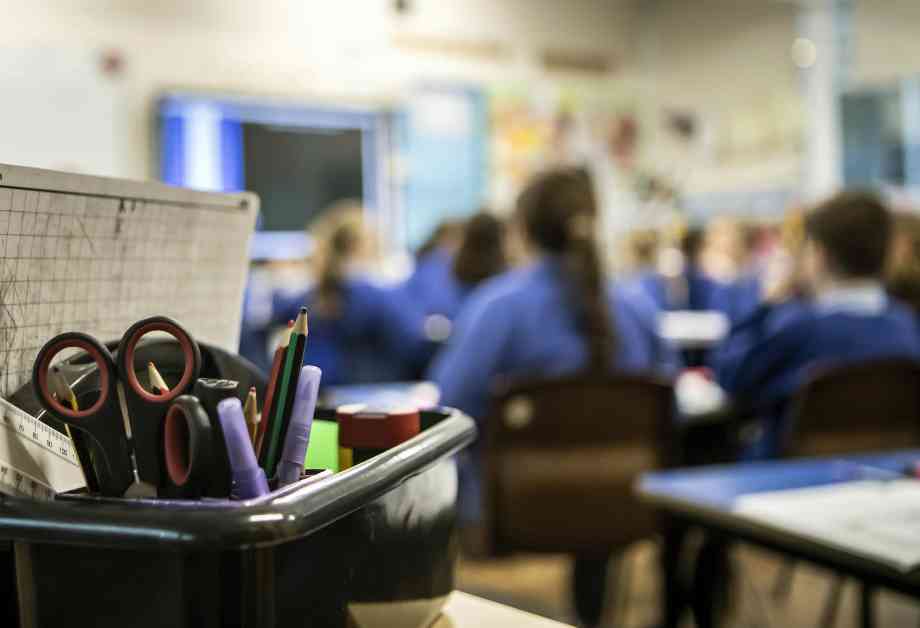Staff in schools are facing increasing concerns over their safety and well-being as they navigate the challenging landscape of dealing with abuse and violence within educational settings. The GMB union has taken a stand against what they perceive as a lack of adequate support for non-teaching staff, who often find themselves in the line of fire when incidents occur.
John Slaven, GMB regional organiser, has highlighted a troubling trend of rising violence and abuse in schools, prompting the union to take action. The fear of a “culture of blame” has permeated the atmosphere, leaving staff vulnerable to disciplinary measures for their responses to difficult situations. This atmosphere of fear and uncertainty has left many workers feeling unprotected and undervalued in their roles.
The issues at hand are not limited to specific roles within schools, as janitors, school catering staff, and school crossing patrol officers are all impacted by the lack of proper support and training. These essential staff members are often asked to take on additional duties in the face of staffing shortages, only to find themselves unsupported when things go wrong. The delicate balance of protecting students while also ensuring the safety and well-being of staff is a complex challenge that requires careful consideration and proactive measures.
Subheadings:
1. The Impact of Incidents on Staff Well-being
2. Addressing the Lack of Support and Training
3. Moving Towards a Safer and Supportive Environment
The Impact of Incidents on Staff Well-being
The emotional toll of experiencing violence and abuse in the workplace cannot be understated, especially for those who work in educational settings where their primary focus is on the well-being of students. Staff members who find themselves in the midst of volatile situations are often left feeling traumatized and unsupported, leading to a decline in their overall well-being and job satisfaction.
The fear of facing disciplinary action for their responses to abusive behavior only adds to the stress and anxiety that many school staff members are already experiencing. The lack of adequate sanctions for those responsible for perpetrating abuse further exacerbates the situation, leaving staff feeling vulnerable and unprotected in their roles. The need for a supportive and nurturing work environment is crucial for the overall success and morale of school staff members who play a vital role in the education and well-being of students.
Addressing the Lack of Support and Training
One of the key issues highlighted by the GMB union is the lack of proper support and training for non-teaching staff who are often on the front lines when incidents occur. From janitors to school crossing patrol officers, these essential staff members are often asked to step into roles that require a level of expertise and training that they may not have received. This lack of preparation and support leaves them ill-equipped to handle potentially dangerous situations, putting both themselves and others at risk.
The need for comprehensive training programs that address the specific challenges faced by non-teaching staff in schools is essential to ensuring a safe and supportive work environment. Providing staff members with the tools and resources they need to effectively respond to incidents of violence and abuse is crucial in preventing harm and fostering a culture of respect and safety within educational settings. By investing in the training and development of all staff members, schools can create a more secure and cohesive community that prioritizes the well-being of everyone involved.
Moving Towards a Safer and Supportive Environment
In light of the growing concerns raised by the GMB union, it is clear that action must be taken to address the systemic issues that have left school staff feeling vulnerable and unsupported. Creating a safer and more supportive environment for all staff members requires a multi-faceted approach that prioritizes training, communication, and accountability.
Schools must invest in comprehensive training programs that equip staff members with the skills and knowledge they need to effectively respond to incidents of violence and abuse. This training should be ongoing and tailored to the specific roles and responsibilities of non-teaching staff, ensuring that they are prepared to handle challenging situations with confidence and professionalism. Additionally, schools must foster a culture of open communication and support, where staff members feel empowered to speak up about their concerns and experiences without fear of retribution.
By working together to address the root causes of violence and abuse in schools, we can create a safer and more supportive environment for all staff members. It is crucial that schools prioritize the well-being and safety of their staff members, as they play a vital role in shaping the educational experiences of students and fostering a positive learning environment. Only by working together can we create a culture of respect, safety, and support that benefits everyone involved in the education system.















